|
|
|
|
|
THE OBSERVER
|
| |
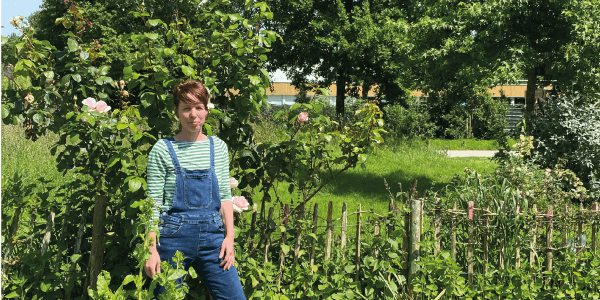
|
| |
|
Caroline Guittet
Landscape project manager at the Observatory of the Environment in Brittany
|
|
The goal of France's first regional survey of everyday landscapes and their impact on residents is to help local elected officials understand how residents feel and act accordingly. Entitled "Well-being and Breton landscapes", this survey was carried out by the Observatory of the Environment in Brittany and its partners. It answers two questions: What characteristics make people consider landscapes as quality today? What are the challenges for improving the quality of landscapes for the future?
[+]
|
| |
|
| |
|
MOSAIC
|
| |
|
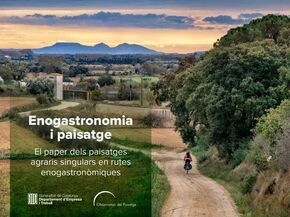
|
|
|
The publication that relates food and wine and the landscape is now available
|
|
|
|
The Landscape Observatory has published Enogastronomia i paisatge. El paper dels paisatges agraris singulars en rutes enogastronòmiques, the result of a partnership between the Catalan Ministry of Business and Labour’s General Directorate of Tourism. The publication confirms how the relationship between food and wine and the landscape is a magnificent opportunity to create a tourist product that joins agriculture with heritage, history, culture, identity and creativity, starting from the wealth, diversity and uniqueness of agricultural landscapes, defined in the eight landscape catalogues of Catalonia. In the midst of the climate, energy and systemic crisis, whose effect on the landscape is becoming increasingly palpable, there should be no doubt about the agricultural model (and agricultural landscapes) that the tourist sector should promote.[+]
|
|
|
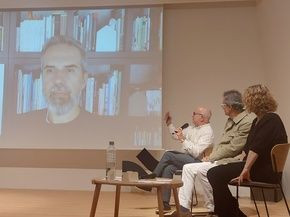
|
|
|
Get another chance to see the presentations of the seminar “El paisatge i el color. Percepció, significats i intervenció”
|
|
|
|
Videos of the presentations of the seminar “El paisatge i el color. Percepció, significats i intervenció” (“Landscape and colour: perception, meanings and intervention”), held on 5 April 2024, have been available on the Landscape Observatory’s website for the last few days. They can be viewed in the Video Library section or directly on its Vimeo channel . Held at Espai Cràter in Olot, the seminar was organised by the Landscape Observatory of Catalonia with the support of Bòlit, Centre d’Art Contemporani and Olot City Council and in cooperation with the Catalan Ministry of Territory’s General Directorate of Spatial Planning, Urban Development and Architecture, the Professional Architects’ Association of Catalonia’s Demarcation of Girona, the Fundació Fita and the Art School of Olot.
|
|
|
|
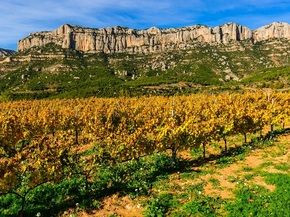
|
|
|
The European Commission is interested in the landscape charter as a tool to reach agreements in rural areas
|
|
|
|
On 22 May 2024, the European Commission’s Rural Pact Support Office held the Policy Lab ‘Bringing the Rural Pact closer to citizens’ in Brussels. The event was aimed at identifying key aspects and inspiring local initiatives for the timely implementation of the European Rural Pact locally and for explaining it to the public. The president of the Association of Rural Initiatives of Catalonia (ARCA) and of the Regional Council of Priorat, Sergi Méndez, and the director of the Landscape Observatory, Pere Sala, were invited to discuss the experience of the Landscape Charter of Priorat at the roundtable discussion “Illustrative examples of local-level expression of the Rural Pact”, aiming to show it as a successful example of the implementation of the European Rural Pact locally and a replicable model elsewhere in Europe. The Policy Lab brought together more than 100 participants involved in designing and implementing initiatives or policies with an impact on local rural communities.[+]
|
|
|
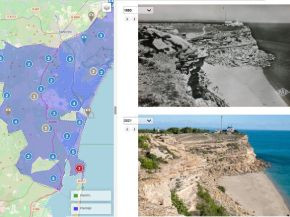
|
|
|
The Landscape Observatory is invited to the meeting of the Steering Committee of the Photographic Observatory of the Landscapes of the Catalan Pyrenees
|
|
|
|
As part of the upcoming photographic campaign of the Regional Natural Park of the Catalan Pyrenees, the first meeting of the Steering Committee of the Photographic Observatory of the Landscapes of the Catalan Pyrenees was organised in late May 2024, to which the Landscape Observatory of Catalonia was invited. The meeting defined the objectives of the photographic monitoring and the planned awareness-raising tools. French photographic observatories have a long history. Not only do they document changes in the landscape through photography, but they are also a tool for urban planning. The Landscape Observatory of Catalonia was invited to learn about all this first-hand and to publicly discuss its Image Archive. The Archive was presented by Gemma Bretcha, the documentary maker who runs it.
|
|
|
|
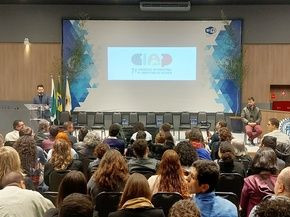
|
|
|
The Landscape Observatory supports Brazilian and Uruguayan developments in defining and implementing landscape policies
|
|
|
|
The Landscape Observatory participated in the “Seventh International Congress of Landscape Architecture: The Social Function of Landscape”, which was held on 27 and 29 May in the headquarters of the Paranà Engineering Institute in Curitiba. The director of the Landscape Observatory, Pere Sala, delivered the opening speech. Organised by the Brazilian Association of Landscape Architects (ABAP), the event brought together landscape specialists, academics and political and technical leaders. A draft Landscape Law and an ambitious landscape policy for Brazil were also presented. The director of the Observatory then went to the Eastern Regional University Centre (CURE) of the University of the Republic of Uruguay to give a talk on 31 May about the integration of landscape in public policies and the relationship between landscape and development. At the same time, several Uruguayan professionals, teachers and researchers from various disciplines (landscape design, art history, archaeology, geography, etc.) gathered as part of the “Art and Landscape Observatory” recently created by the University of the Republic of Uruguay.[+]
|
|
|
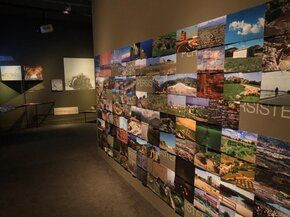
|
|
|
See the exhibition “Two stones: persistent landscapes” in Tortosa
|
|
|
|
The exhibition, which could be visited until 2 June at Palau Robert, will open again on 19 July at 7.30 pm at Palau Oliver de Boteller in Tortosa and will close on 31 December 2024.
The exhibition aims to show the richness and diversity of the landscapes structured by dry stone to highlight this millennial and universal technique and to lay claim to its validity and persistence. Catalonia is one of the richest areas in the world in terms of dry stone structures. Dry stone not only represents one of the most characteristic features of our landscapes and an extraordinary heritage, but above all it is a true source of inspiration and an exceptional container of values that will serve us so well to face the challenges of the world today.
In Barcelona, the exhibition was visited by nearly 50,000 people. The initiative is from the General Directorate of Diffusion, in collaboration with the General Directorate of Popular Culture and Cultural Associations and has been produced by the Landscape Observatory of Catalonia. [+]
|
|
|
|
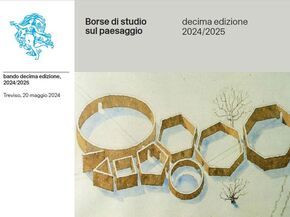
|
|
|
Call for landscape grant from Fondazione Benetton Studi Ricerche
|
|
|
|
For the tenth year in a row, Fondazione Benetton Studi Ricerche has opened a call for two six-month residential grants. The topic to be developed must focus on one of the three thematic areas: “landscape project”, “landscape theories and policies” and “nature and garden”. Those interested must be under 40 years of age and have until 30 August to submit their projects. The grant will run from 15 January 2025 to 15 July 2025. More information on the grants can be found here.
|
|
|
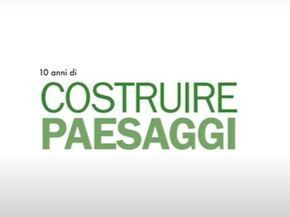
|
|
|
Ten years of “Costruire Paesaggi”
|
|
|
|
The project “Costruire paesaggi” (“Building Landscapes”) is an initiative of the Scuola per il Governo del Territorio e del Paesaggio (TSM-Step) that proposes a programme of research, training and intervention intended for all non-mandatory secondary education schools in the autonomous province of Trentino. During the 10 years of “Costruire paesaggi”, students have worked with teachers and landscape experts to carry out activities and workshops that have enabled them to develop concrete ideas and approaches to conserve and transform the landscape while improving their knowledge of the landscape and its values at the same time.
|
|
|
|
|
| |
 |
| |
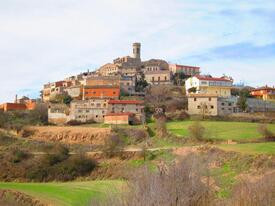
|
|
|
Starting point of he landscape plan of the municipality of Argençola |
|
|
|
The landscape plan of the municipality of Argençola has started to work. Last July 5, the participation process was presented in the Plenary Hall of the Town Hall of this town of Anoia, which served as the starting point for the Plan. One of the people invited to the event was the ex-chief of the neighbouring municipality of Cervera, Ramon Royes, who explained the experience of the Landscape Plan of this locality. The event was also attended by the director of the Landscape Observatory, who will accompany and advise the process. The Argençola Landscape Plan will be the third landscape plan developed by a Catalan municipality, after Granollers (2011) and Cervera (2014).
|
|
|
|
|
| |
 |
| |
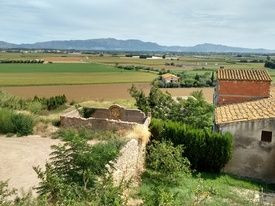
|
|
|
Route: the voice of the Alt Empordà landscape |
|
|
|
The Regional Council of Alt Empordà has designed [“La veu del paisatge”]((https://paisatge.altemporda.cat/la-veu-del-paisatge) (“The Voice of the Landscape”) as part of the Landscape Charter. “La veu del paisatge” is a large 14-stage circular route that links different viewpoints and helps people to learn about the landscape units in the county of Alt Empordà. At each viewpoint, there are poems by the writer M. Rosa Font Massot, whose poetic work is inspired by the Empordà landscape. The route runs along paths and trails and is designed to be followed mainly on foot and by mountain bike. The last stage ends at El Far d’Empordà. This village is the home of the Alt Empordà Landscape Interpretation Centre, which helps people to learn a little more about the characteristics of the region’s landscapes.
|
|
|
|
|
|
|
|
|
| |
|
PUBLICATIONS OF INTEREST
|
| |
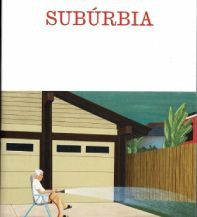
|
|
|
|
Subúrbia
|
|
|
La construcció del somni americà. Philipp Engel (dir.). Barcelona: CCCB; Direcció de Comunicació de la Diputació de Barcelona, 2024. ISBN: 978-84-19091-90-1.
This catalogue of the exhibition of the same name analyses the American suburban model and highlights its contradictions. Though successfully exported all over the world, it is an unsustainable way of life, based on continuous automobile trips and great expenditure of energy. This ambivalence, between utopia and dystopia, may be what makes “Suburbia” so magnetic for the artistic gaze.
|
|
|
|
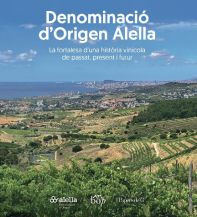
|
|
|
|
Denominació d'origen Alella. La fortalesa d'una història vinícola de passat, present i futur
|
|
|
Montserrat Serra Arenas and Òscar Pallarès (coord.). Alella: Vibop edicions; Consell Regulador de la Denominació d’Origen Alella, 2023. ISBN: 978-84-126197-6-8.
As Pere Sala, the director of the Landscape Observatory, writes in the foreword, “this book is an exquisite, generous and vibrant connection of perspectives, perceptions, feelings and interpretations about a territory attached to the sea that is rediscovering its memory, reclaiming its Mediterranean character and once again depicting its identity and its future amidst the dense and changing metropolitan region of Barcelona”.
|
|
|
|
|
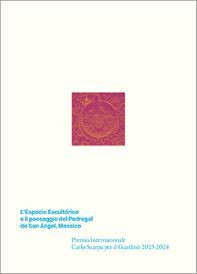
|
|
|
|
L'Espacio Escultórico e il paesaggio del Pedregal de San Ángel, Messico.
|
|
|
Patrizia Boschiero and Luigi Latini (eds.). Treviso: Fondazione Benetton Studi Ricerche-Antiga, 2024. ISBN: 978-88-8435-435-8.
This collective volume brings together the opinions of over 20 authors from the perspective of different disciplines and several contemporary and early 20th-century photographers to explain where Fondazione Benetton devotes the 33rd edition of the research project consisting of the International Carlo Scarpa Prize for Gardens: Espacio Escultórico, in the Pedregal de San Ángel in Mexico City.
|
|
|
|
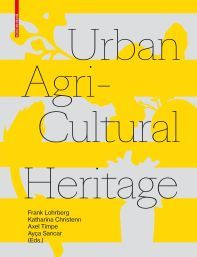
|
|
|
|
Urban Agri-cultural Heritage
|
|
|
Frank Lohrberg, Katharina Christenn, Axel Timpe i Ayça Sancar (eds.). Basel: Birkhäuser Verlag, 2023. ISBN: 978-3-0356-2251-5.
Urban gardening and agriculture have become important parts of urban landscape planning in the context of persistent urbanisation with limited resources. However, the cultural and historical dimensions have ultimately suffered from a lack of consideration. This book presents a full outline of the traditional ways of producing food in cities to help to preserve those values.
|
|
|
|
|
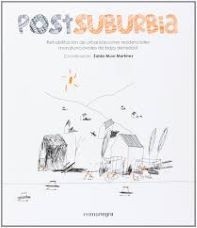
|
|
|
|
Postsuburbia. Una guía para la rehabilitación de urbanizaciones residenciales de baja densidad
|
|
|
Zaida Muxí Martínez (coord.). Barcelona: Comanegra, 2013. ISBN: 978-84-15097-76-1.
This is a manual for rehabilitating monofunctional residential environments focused on people’s lives. The actions are aimed at improving autonomy, security and equal opportunities for the people living there. The objective is to attain more compact, denser and more self-contained models. Gradual improvement is proposed to help to avoid abusive and unsustainable uses of finite and scarce goods such as people’s land, energy and time.
|
|
|
|
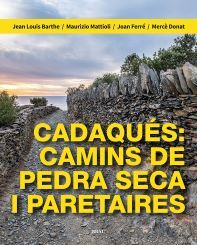
|
|
|
|
Cadaqués: camins de pedra seca i paretaires
|
|
|
Jean Louis Barthe, Maurizio Mattioli, Joan Ferré and Mercè Donat. Figueres: Brau edicions, 2024. ISBN: 978-84- 18096-70-9.
The world of dry stone is inseparable from the landscape of Cap de Creus and marks its personality. This book takes readers on four tours of the natural park that show us a series of significant and representative examples of dry stone work and a series of interviews with those we could call the last stonemasons, who learned from great masters the art of wisely placing the stones one by one.
|
|
|
|
|
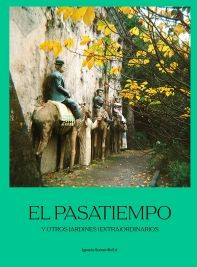
|
|
|
|
El pasatiempo y otros jardines (extra)ordinarios.
|
|
|
Ignacio Somovilla. Barcelona: Encyclopaedia Botanica, 2024. ISBN: 978-84-09-56239-8.
This book retraces the history of the Pasatempo garden created by the García-Naveira brothers over 100 years ago. It reconstructs the garden’s former layout and splendour, while also conducting a Masonic reading of it and includes the author’s personal selection of other bizarre gardens and unique gardens in the world, from the legendary Bomarzo, to the Palais Ideal du Facteur Cheval with which it was always compared, the Quinta da Regaleira, Edward James’ Las Pozas and many more.
|
|
|
|
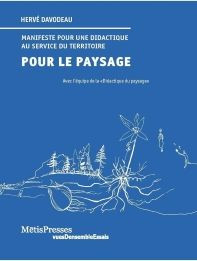
|
|
|
|
Manifeste pour une didàctiques au service du territoire. Pour le paysage
|
|
|
Hervé Davodeau and the team from “Didactique du paysage”. [S.l.]: MetisPresses, 2023. ISBN: 978-2-940711-35-2.
Territories are rapidly transforming and images of the Anthropocene circulate on all networks, but the landscape paradoxically receives little attention in school programmes and political discourses. This manifesto aims to convince people of the importance of “putting the landscape back on the agenda” and updating it in the context shaped by new environmental, social and democratic challenges, because the landscape is a powerful tool for questioning the world and discussing the future of territories.
|
|
|
|
|
|
|
|